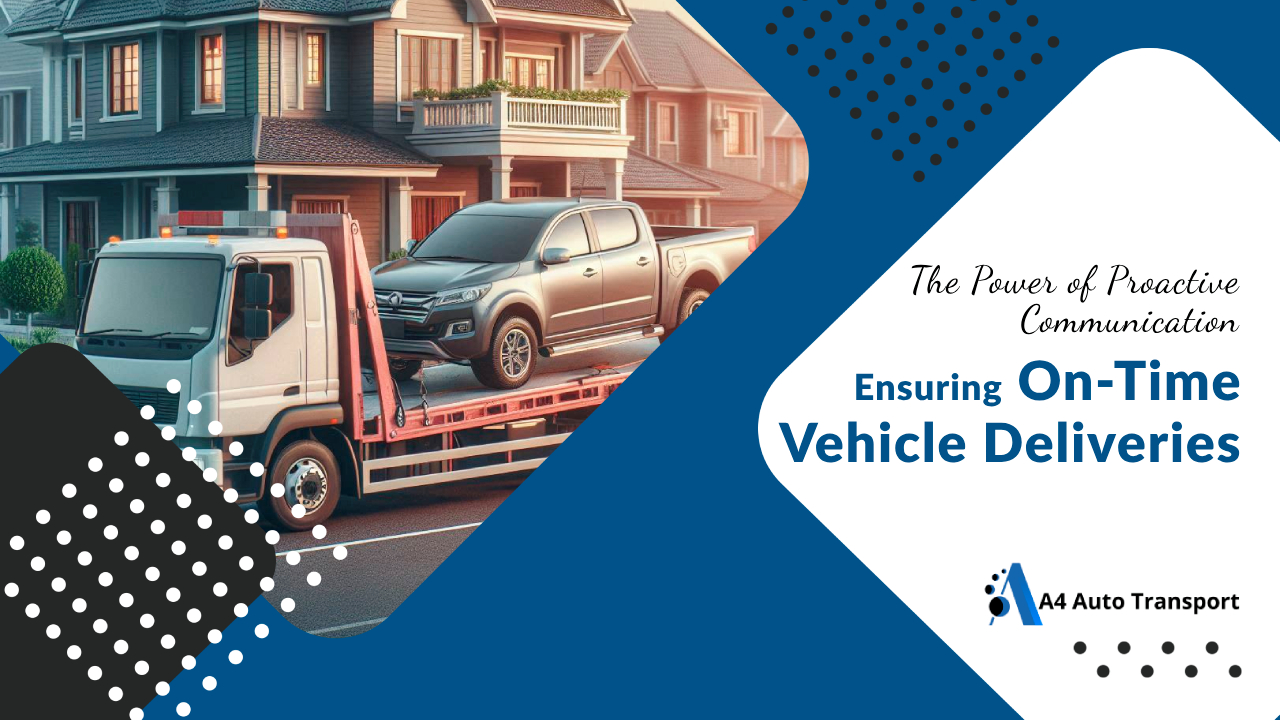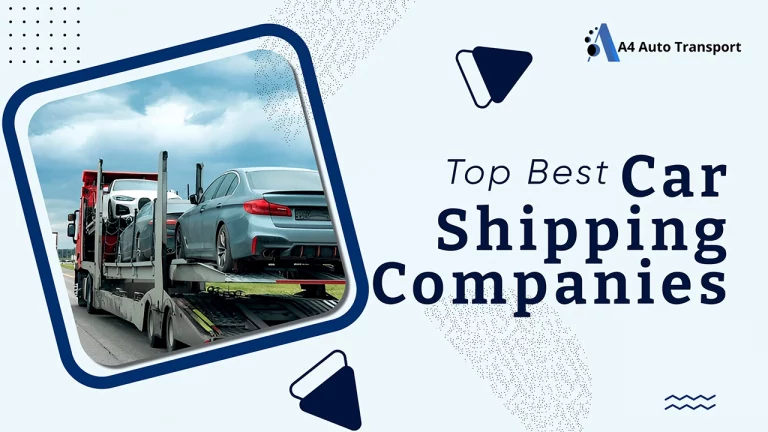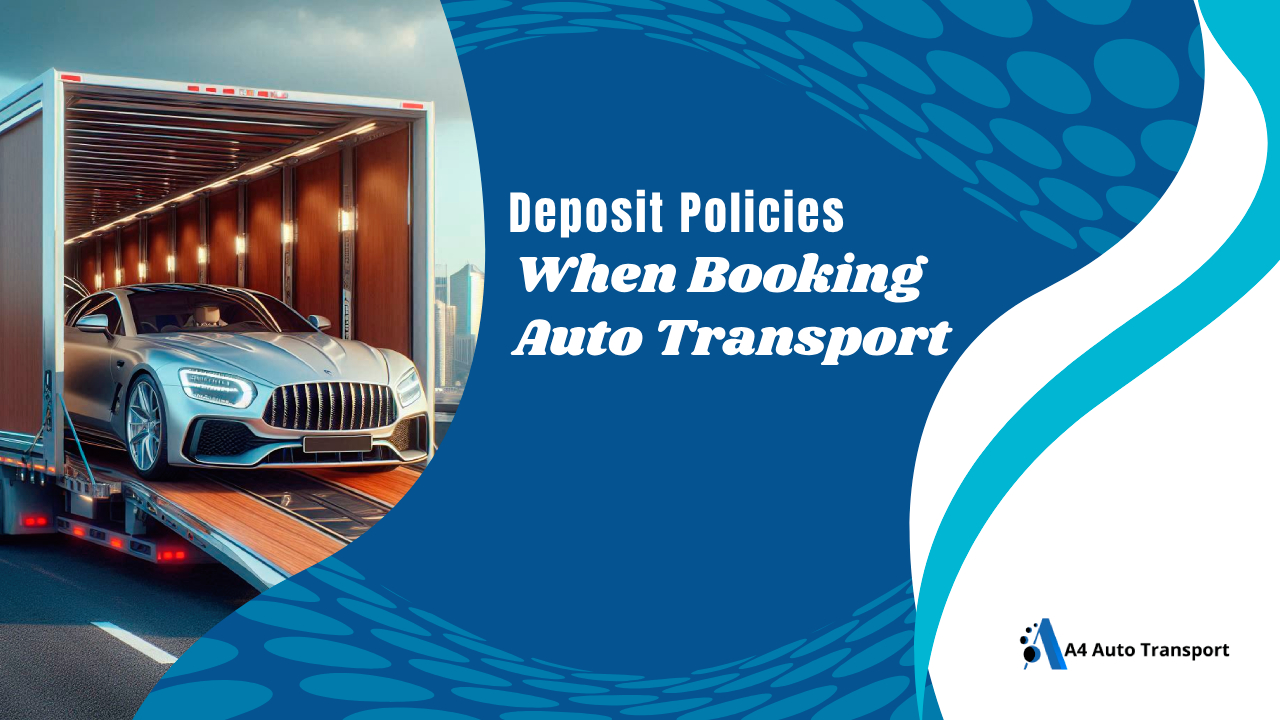The Power of Proactive Communication: Ensuring On-Time Vehicle Deliveries

In the world of car shipping, timely drop-offs are crucial for customer satisfaction and operational efficiency. Delays can lead to frustration, increased costs, and logistical challenges. One effective way to ensure on-time drop-offs is through proactive communication. By maintaining open, clear, and consistent lines of communication, car shipping companies can significantly improve their service and avoid common pitfalls.
Key Highlights
- Utilize real-time tracking, offer detailed itineraries, and conduct regular check-ins to keep customers informed.
- Set clear expectations, provide regular updates, and address issues promptly to ensure customer satisfaction.
- Proactive communication builds trust, improves efficiency, and gives car shipping companies a competitive edge.
The Importance of Proactive Communication
Proactive communication involves anticipating potential issues and addressing them before they escalate. This approach is particularly beneficial in car shipping, where numerous variables such as traffic, weather, and mechanical issues can affect delivery schedules. Here’s how proactive communication can secure on-time drop-offs:
Setting Clear Expectations:
- Initial Contact: When a customer first books a car shipping service, it’s essential to set clear expectations regarding timelines, potential delays, and the process involved. Providing a detailed overview can help manage customer expectations and reduce anxiety.
- Detailed Itinerary: Offering a detailed itinerary that includes pick-up and drop-off times, driver contact information, and contingency plans can further assure customers.
Regular Updates:
- Real-Time Tracking: Implementing GPS tracking systems allows customers to monitor their vehicle’s progress in real time. Regular updates via SMS or email can keep customers informed of their vehicle’s location and estimated car shipping time.
- Scheduled Check-Ins: Regular check-ins with customers to provide status updates, even when things are going smoothly, can build trust and demonstrate a commitment to transparency.
Immediate Issue Resolution:
- Anticipating Problems: Proactive communication means being aware of potential issues before they arise. This could involve monitoring weather forecasts, traffic conditions, and vehicle maintenance schedules.
- Quick Responses: Informing customers immediately about any delays or changes in plans, along with providing a revised ETA, can help manage expectations and reduce frustration.
Tools and Strategies for Effective Communication
Technology Integration:
- Transport Management Software (TMS): Utilizing a TMS can streamline operations and enhance communication. These systems often include features like automated notifications, real-time tracking, and customer portals.
- Mobile Apps: Developing a user-friendly mobile app for customers can provide a centralized platform for updates, tracking, and communication.
Training and Development:
- Customer Service Training: Training staff in effective communication techniques, empathy, and problem-solving can improve interactions with customers.
- Driver Communication: Ensuring that drivers are equipped with the necessary tools and training to communicate effectively with dispatchers and customers is equally important.
Feedback Mechanisms:
- Surveys and Reviews: Encouraging customers to provide feedback through surveys and reviews can highlight areas for improvement and reinforce positive practices.
- Regular Audits: Conducting regular audits of communication processes and outcomes can help identify gaps and opportunities for enhancement.
Benefits of Proactive Communication
Enhanced Customer Satisfaction:
- Keeping customers informed and engaged throughout the transport process can significantly boost satisfaction and loyalty.
- Transparent communication helps build trust and confidence in the service.
Operational Efficiency:
- Proactive communication can lead to more efficient operations by anticipating and addressing issues before they cause significant delays.
- Reduced downtime and quicker issue resolution contribute to smoother workflows.
Competitive Advantage:
- Car transport companies that prioritize proactive communication are likely to stand out in a competitive market. Customers appreciate reliability and transparency, which can translate into repeat business and positive word-of-mouth referrals.
Conclusion
Securing on-time drop-offs in car shipping requires more than just efficient logistics; it demands a commitment to proactive communication. By setting clear expectations, providing regular updates, and addressing issues promptly, auto transport companies can enhance customer satisfaction, improve operational efficiency, and gain a competitive edge. Investing in the right tools, training, and strategies will ensure that proactive communication becomes a cornerstone of your service delivery, leading to more reliable and successful drop-offs.
a4AutoTransport is a group of auto transport researchers and experts that comes in handy for anyone who wants to move their car/vehicle without putting extra miles on the odometer. At a4AutoTransport, We researched over a hundred car shipping companies, interviewed real customers and industry leaders, and collected nearly 500 quotes to find the nation’s best auto transport companies. With our combined 5 years of industry experience and research, we’ll help you find the right car shipper for your budget.






